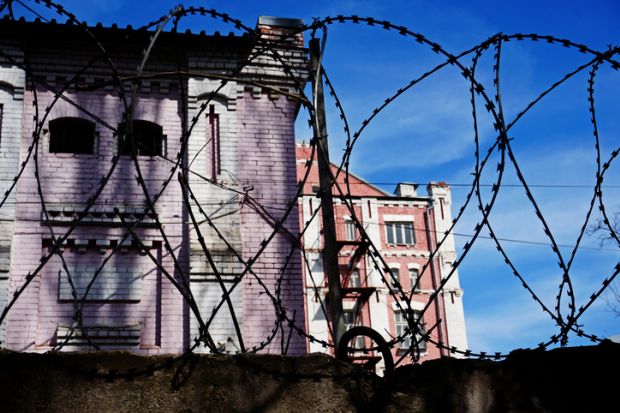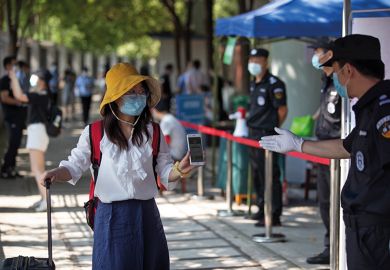A growing number of Russian academics are calling for the release of the rector of a leading Moscow institution, who they say has been imprisoned on false charges and could die if he remains behind bars.
Sergey Zuev, the head of the prestigious Moscow School of Social and Economic Sciences, also known as Shaninka after its founder, has been accused of embezzlement by Russian authorities, amid increased pressure on universities by the Kremlin.
The 67-year-old is on trial for allegedly stealing 21 million rubles (£213,000) of government funding for projects carried out by his institution. Scholars say he is being held on false charges as his health deteriorates.
Professor Zuev has coronary heart disease for which he has undergone three operations, the last of which took place after he was placed under house arrest in October. Then, on 9 November, Russian authorities took the rector from his home and placed him in a prison to await trial, sparking public outcry.
An open letter dated 30 November and signed by more than 650 academics calls for his release.
“The imprisonment of a reputable academic scholar before trial is horrifying in itself, but Professor Zuev is also threatened with death in prison, given his lack of access to appropriate medical treatment and an expert diagnosis,” they write.
Signatories of the letter, which is addressed to Russia’s human rights ombudsman Tatyana Moskalkova, include Russian professors and heads of institutions as well as four Nobel laureates.
Their plea joins a separate effort on 26 November by dozens of scholars from the Russian Academy of Sciences, who say they have no doubt about Professor Zuev’s “impeccable academic and public reputation and deep human decency, which does not allow us to believe in his involvement in any theft” and call the arrest a “means of pressure that has all the signs of torture”.
Professor Greg Yudin, a philosopher at Shaninka, decried the rector’s treatment by Russian authorities, which he said was unusually harsh, even for Russia.
“He had a stroke when they interrogated him 36 hours in a row [and] underwent a third surgery when still in house arrest, but despite that, they still insisted on putting him behind bars,” said Professor Yudin.
If the appeal to liberate Professor Zuev fails, it could also cause lasting damage to his university. Already, some faculty members including Professor Yudin have had to pull out of large-scale research collaborations with external partners.
“When they imprisoned Sergey…I said I’m sorry, I can’t guarantee anything,” he said, adding, “so it is already a huge blow to our future”.
Beyond Shaninka, the arrest has sent shockwaves through Russian academia.
Virtually all universities in the country are to some extent reliant on public funding, meaning that an embezzlement charge could in theory be levelled against any institutional head, said Igor Chirikov, a senior researcher at the Center for Studies in Higher Education at the University of California, Berkeley.
“It’s a strong signal to every university administrator that you need to be loyal,” he said.
The arrest also marks a broader, troubling shift by the government, said Dr Chirikov. “Russia is moving from pressure and attacks on individual academics to attacks on institutions…to make sure these types of academics don’t have a place to work or build their career,” he said.




